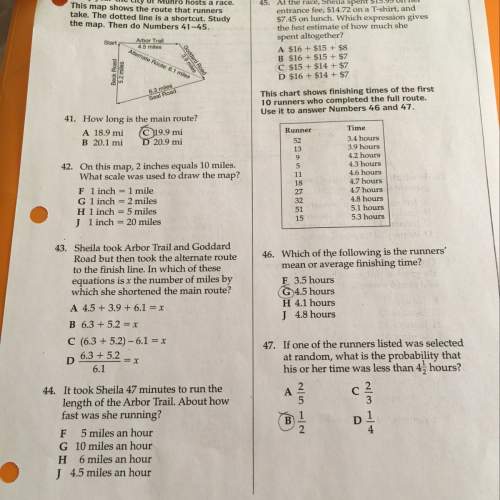
Mathematics, 08.10.2019 03:30, missperfectionp89qqq
Suppose that a, b, and c are three independent events such that pr(a) = 1/4, pr(b) = 1/3, and pr(c) = 1/2. (a) determine the probability that none of these three events will occur. (b) determine the probability that exactly one of these three events will occur.

Answers: 3
Other questions on the subject: Mathematics


Mathematics, 21.06.2019 20:00, guccim5971
Suppose you are an avid reader and are looking to save money on the cost of books instead of paying about $20 for each book, you decide to look into purchasing a kindle for $120 you can purchase e-books for about $5 each 1. find the slope-intercept equation for the cost of the hard copy of books using x to represent the number of books 2. find the slope-intercept equation for the cost of the kindle with cost of e-books using x to represent the number of books
Answers: 1

Mathematics, 22.06.2019 00:30, kkeith121p6ujlt
Afurniture store is having a weekend sale and is offering a 20% discount on patio chairs and tables the sales tax on furniture is 6.25%
Answers: 3
Do you know the correct answer?
Suppose that a, b, and c are three independent events such that pr(a) = 1/4, pr(b) = 1/3, and pr(c)...
Questions in other subjects:



Spanish, 19.02.2021 19:40

Mathematics, 19.02.2021 19:40

Mathematics, 19.02.2021 19:40

Mathematics, 19.02.2021 19:40

Mathematics, 19.02.2021 19:40

Physics, 19.02.2021 19:40

History, 19.02.2021 19:40







